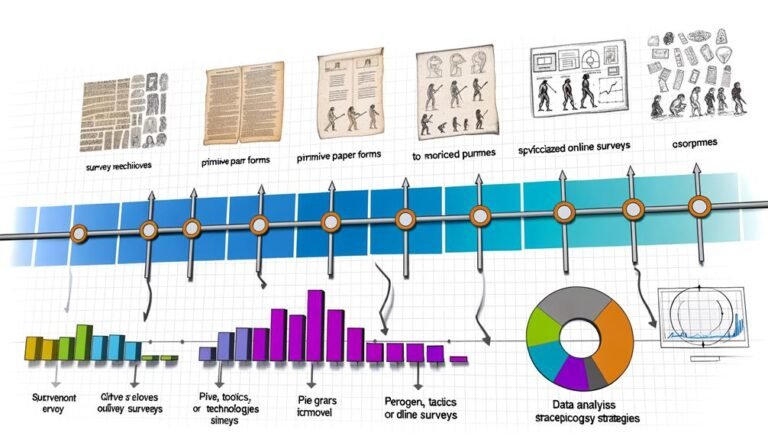Unveiling the Power of Competency Assessment
Did you know that competency assessment goes beyond just evaluating skills? It holds the key to unlocking hidden potential within your organization.
By understanding how competency assessment can revolutionize talent management and drive business success, you will be equipped to make informed decisions that shape the future of your workforce.
As you explore the intricacies of identifying core competencies, aligning them with organizational goals, and fostering a culture of continuous improvement, you will uncover a world of possibilities waiting to be harnessed.
Key Takeaways
- Competency assessment drives employee development and business alignment.
- Identifies strengths and areas for growth to enhance performance.
- Tailored training programs address skill gaps effectively for success.
- Fosters continuous learning culture, improving engagement and retention.
Understanding Competency Assessment
Understanding competency assessment is crucial for organizations aiming to evaluate and improve employee skills and knowledge effectively. Exploring competency frameworks provides a structured approach to defining and assessing the skills required for various roles within the organization.
By enhancing skill evaluation through competency frameworks, organizations can ensure a comprehensive understanding of the abilities and knowledge needed for success in different positions. This structured approach allows for a more objective assessment of employee capabilities, helping to identify areas for development and growth.
Competency frameworks also enable organizations to align individual skills with overall business objectives, ensuring that talent is utilized effectively to drive success. Embracing competency frameworks is key to enhancing skill evaluation and maximizing employee potential within the organization.
Importance of Competency Assessment
Assessing competencies within an organization is crucial for driving employee development and aligning talent with business objectives. Competency assessment plays a vital role in talent optimization by identifying individual strengths and areas for improvement. It enhances performance evaluation processes, allowing for targeted development plans that cater to specific needs.
By evaluating competencies, organizations can facilitate succession planning, ensuring that employees are prepared for future roles. This assessment is instrumental in improving overall organizational performance by aligning individual capabilities with the company's strategic goals. Moreover, it aids in creating tailored training programs that address skill gaps effectively.
In essence, competency assessment is a cornerstone for enhancing employee development, aligning talent with business objectives, and ultimately driving organizational success.
Process of Competency Assessment
To effectively conduct a competency assessment within your organization, begin by defining the required competencies for each role. This step sets the foundation for the evaluation process.
Utilize competency evaluation techniques to assess employees against the established criteria. Identify both strengths and weaknesses to gain a comprehensive understanding of individual capabilities. Offer constructive feedback and provide development opportunities to bridge any skill gaps.
Implement competency mapping strategies to align talent with organizational goals effectively. Monitor progress continuously and reassess periodically to track improvement.
Benefits of Competency Assessment
Enhancing employee engagement through competency assessment fosters a culture of continuous learning and development within the organization.
By evaluating employees against defined competencies, you can increase job satisfaction and retention rates. This process not only enables personalized development plans but also paves the way for career growth and advancement opportunities.
When employees see their strengths and weaknesses clearly, they're more likely to feel valued and motivated to improve. Moreover, competency assessment contributes to a culture of continuous learning, where individuals are encouraged to enhance their skills and knowledge continually.
Ultimately, by investing in competency assessment, organizations can create a more engaged workforce, leading to improved performance and overall success.
Challenges in Competency Assessment
One of the primary hurdles faced in competency assessment is garnering buy-in and cooperation from both employees and managers within the organization. Addressing resistance from either party can be challenging, as some may view assessments as threatening or unnecessary. To overcome this challenge, it's crucial to communicate the purpose and benefits of competency assessment clearly.
Another key challenge is ensuring reliability in the data collected. This involves developing standardized evaluation criteria, providing adequate training for assessors, and implementing quality control measures. By addressing resistance and ensuring reliability, organizations can enhance the effectiveness of competency assessments and utilize the insights gained to drive employee development and organizational success.
Enhancing Employee Development
Implementing a structured approach to competency assessment is key to fostering effective employee development within organizations. By conducting regular competency assessments, you can identify areas for employee growth and skill enhancement. These assessments help employees understand their strengths and weaknesses, enabling targeted development plans.
Providing feedback based on competency assessments allows individuals to focus on improving specific skills, ultimately leading to enhanced job performance. Through skill enhancement initiatives driven by competency assessments, employees are better equipped to meet organizational objectives and contribute to overall success.
Emphasizing employee development in competency assessments not only benefits individual growth but also strengthens the organization as a whole by creating a workforce that's continually improving and evolving.
Facilitating Succession Planning
To effectively facilitate succession planning, organizations must strategically identify and develop internal talent for key leadership positions. Succession readiness is crucial for ensuring a smooth transition of leadership roles.
By establishing a robust talent pipeline, companies can cultivate a pool of qualified individuals who are prepared to step into higher positions when needed. Competency assessment plays a significant role in this process by identifying high-potential employees, assessing their readiness for advancement, and creating tailored development plans to bridge any skill gaps.
Through proactive succession planning, organizations can mitigate risks associated with unexpected leadership changes, maintain continuity in operations, and foster a culture of leadership development that aligns with long-term business goals. By investing in succession planning, companies can secure their future success.
Improving Organizational Performance
Facilitating succession planning through competency assessment sets the stage for improving organizational performance by strategically aligning talent with key leadership roles. By enhancing productivity and driving innovation, competency assessment ensures that employees possess the necessary skills and knowledge to meet the organization's objectives. This process not only identifies areas for improvement but also helps in creating targeted training programs to address skill gaps effectively. The table below highlights how competency assessment contributes to enhancing productivity and driving innovation in the workplace:
| Benefits of Competency Assessment | Enhancing Productivity | Driving Innovation |
|---|---|---|
| Enhances employee engagement | ✔️ | ✔️ |
| Improves job satisfaction and retention | ✔️ | ✔️ |
| Enables personalized development plans | ✔️ | ✔️ |
| Facilitates career growth and advancement | ✔️ | ✔️ |
| Contributes to a culture of continuous learning | ✔️ | ✔️ |
Conclusion
You've now seen the undeniable value of competency assessment in driving organizational success. While some may question the time and effort required for assessments, the benefits far outweigh any challenges.
By investing in competency assessment, you can strategically align talent with goals, enhance performance, and foster a culture of excellence. Embrace the power of personalized development plans and succession planning to propel your organization forward.
Don't let hesitation hold you back from unlocking the full potential of competency assessment.







